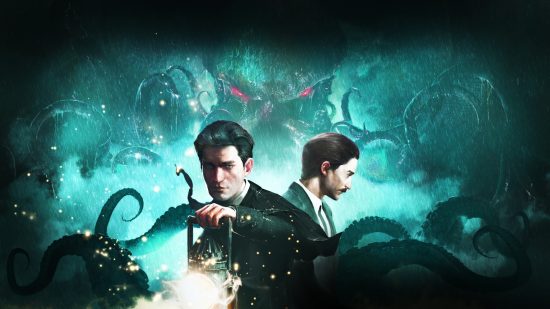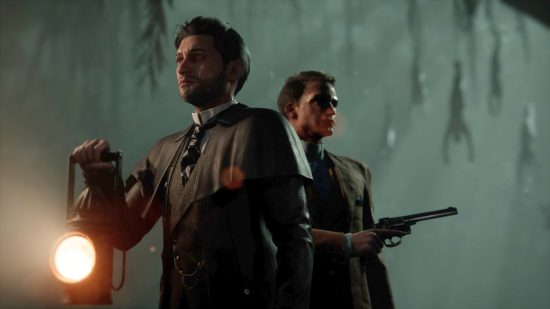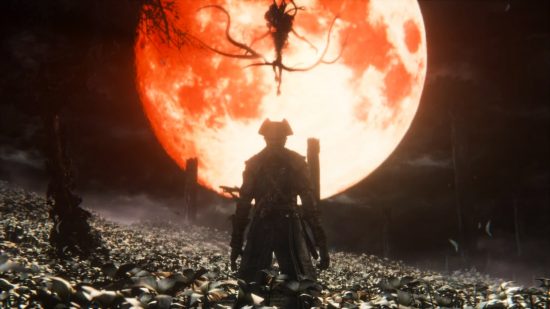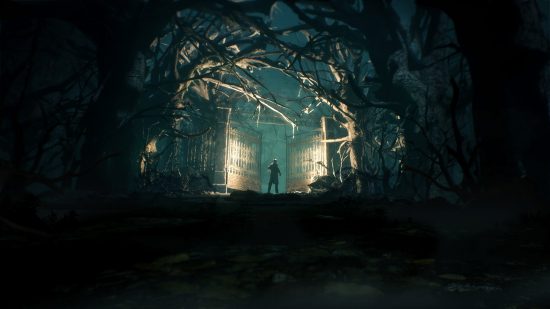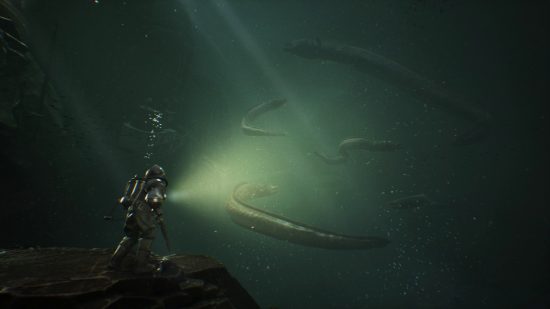“The oldest and strongest emotion of mankind is fear, and the oldest and strongest kind of fear is fear of the unknown.” Those are the words of H.P. Lovecraft, and it now serves as an old adage for certain videogames. There are influences everywhere. Some projects are entirely original and are the brainchild of developers, while others happen to be either an adaptation of sorts or take influence from a source material. No matter what approach a developer takes or how the idea comes about, love and care can help to ensure a carefully constructed game.
However, Lovecraftian lore is a source that continues to inspire devs to this day, and I think it’s fair to say that it’s one of the more tricky inspirations to follow, purely for the amount of lore that surrounds it. Even if you’re not too familiar with his work, I imagine the name, at the very least, rings a bell. Controversial as he may be, Howard Phillips Lovecraft is a renowned writer whose work continues to baffle and entice people, even as we near the 100th anniversary of the release of The Call of Cthulhu in 1928.
The Cthulhu Mythos features a vast amount of lore that can be hard to interpret, though there is a general base consensus, and the writer did flesh out the universe, delving into beings known as the “Great Old Ones.” These all-powerful beings are deities from space, and while Lovecraft’s works do offer insight into various members of this pantheon, it’s the titular Cthulhu that many know best, and it’s that very creature that has a tendency to pop up in videogames from time to time.
However, there’s more to taking inspiration from H.P. Lovecraft’s work than simply taking some tentacle-faced deities and calling it a day. His work is shrouded in mystery and atmosphere, boasting a palpable sense of dread that begs you to dive deep into the psyche of the characters. All of these culminate in terrific horror material that, when in the right hands, can result in equally terrific horror-based games. Or, at the very least, a title that features lore so deep you might end up on the other side of the earth from digging so much for it.
Naturally, all of these games fall under the horror category in some capacity. The recent release of Sherlock Holmes: The Awakening serves as a prime example, as the detective adventure game takes the famous investigator on a supernatural journey with a sinister side, and it just so happens that Cthulhu plays a pivotal role in the game. Honestly, it’s Sherlock Holmes meets the Cthulhu Mythos, and it’s a collision of worlds that makes perfect sense while maintaining a sense of weirdness and confusion.
It’s a unique blend that captures the essence of the horror works of Lovecraft, and while the recent Sherlock Holmes release technically marks the most recent use of Cthulhu (it did initially launch in 2008), other games on Switch and mobile also embrace the Lovecraftian way of things. And, while I fully intend to explore those, I want to look at a certain PlayStation exclusive first – Bloodborne.
FromSoftware’s masterpiece is the perfect example of a videogame shrouded in Lovecraftian influence and mythology. The developers even refer to the deities in the game as Great Ones, though that is but one instance of the inspiration of the Cthulhu Mythos in that game. The world itself is gothic and dark, reminiscent of the works of Lovecraft, but I want to dive deeper than that. In Byrgenwerth, Master Willem, an advocate for the use of insight to ascend to join The Great Ones, says the words, “fear the old blood.” Evidently, this adage comes from the quote that this article begins with.
This indicates a fear of the unknown, for Willem and other Byrgenworth scholars don’t know how the old blood works, and while his student Lawrence swears to remember their adage, he does find and use the old blood. I can’t go too far into this, for this isn’t the place for me to gush about the intricacies of Bloodborne, but that decision has ghastly consequences that result in the scourge of the beast. This is where you, the Hunter, come in. You need to survive the night and defeat the beasts.
During your time in Yharnam and beyond, you encounter various creatures that resemble Cthulhu and other Great Old Ones. The Amygdala is a prime example of this, but the best iterations are Ebrietas and The Moon Presence, as they are both Great Ones with a mythos that’s clearly inspired by H.P. Lovecraft’s work.
Okay, I could go on and on about Bloodborne, so let’s move on before I fall too deep. For those on Nintendo Switch, the most obvious game to discuss when it comes to Lovecraftian influence is Call of Cthulhu, which, quite obviously, features the Great Old One alongside other elements from the Cthulhu Mythos. It’s a game that takes the work of H.P. Lovecraft, removes it from the page and puts it on the screen. Much like Sherlock Holmes: The Awakened, Call of Cthulhu is a detective adventure horror game in which you need to solve a mystery.
It has dark themes, a gothic aesthetic, and an atmosphere that leaves you with a sense of uncertainty. It invokes feelings of confusion through strange happenings that I can best describe as weird, two themes that feature heavily in the work of Lovecraft. Yet, when put into a videogame, it adds an extra layer of immersion, as you get to go on the journey too.
On your adventure in Call of Cthulhu, you get to make some decisions that have a lasting impact on the game and what endings are available to you when the time comes. Diving deep and not being afraid to explore the unknown is the only way to give yourself a chance to leave Darkwater and its shocking truths behind with your sanity intact. Mind you, that doesn’t mean the events that transpire in that godforsaken place don’t have a profound and lasting impact.
While I could continue to name games that feature Cthulhu in some capacity (obviously, right? H.P. Lovecraft-inspired content is bound to feature the Great Old One in some capacity), let’s go for something a little bit different – The Sinking City by Frogwares. Yes, the team is well-versed in these sorts of games. However, while Sherlock Holmes: The Awakening revolves around Cthulhu, The Sinking City features a mystery that heavily features Cthylla.
As her name suggests, Cthylla is the daughter of Cthulhu, showing that Frogwares decided to dive further into the Cthulhu Mythos than relying on the titular Great Old One. This is perhaps my personal favourite of the Lovecraftian games (excluding the masterpiece that is Bloodborne). As you might expect, the story revolves around a detective that must investigate the strange happenings in a dark and dreary place.
With both Call of Cthulhu and The Sinking City, you can apply one of H.P. Lovecraft’s famous quotes, “If I am mad, it is mercy! May the gods pity the man who, in his callousness, can remain sane to the hideous end!” Both titles invite you to go on an adventure that tests your sanity as you dive into the unknown, and, in the end, it’s up to you whether the detectives run from that fear or embrace it and, ultimately, the madness that comes with it as the mysteries unravel.
From those examples, it’s clear to see that Lovecraft’s influence on the videogame world helps to ensure that we have dark and gritty adventures that aren’t afraid to push the boundaries of reality. Forcing you to question your very being and what your purpose may be in the grand scheme of things. The examples I’ve discussed certainly show that what seems to be the case rarely is in Lovecraftian-inspired games.
In fact, sometimes, these games leave you with many questions. You might be desperate for an explanation as you begin to question what is real and what is a fabrication of the character’s imagination in these games. Yet, as the man himself says, “never explain anything.”
For more weird and wonderful expereinces, you should check out our FNAF games and horror games guides.
